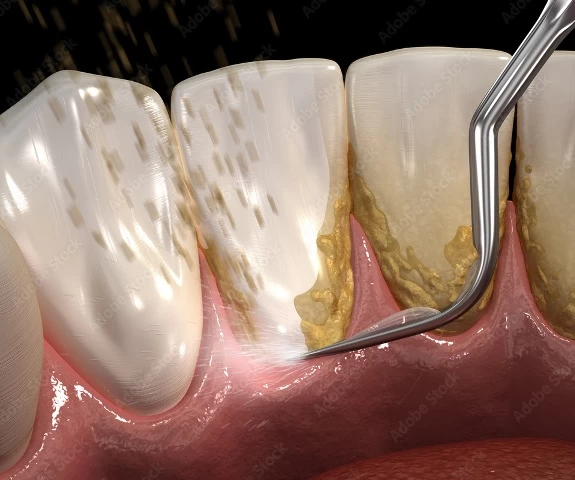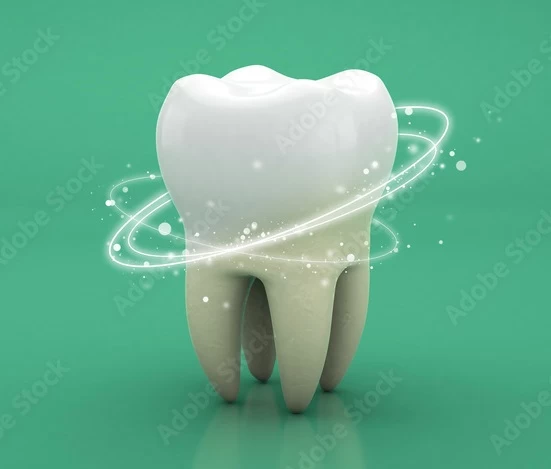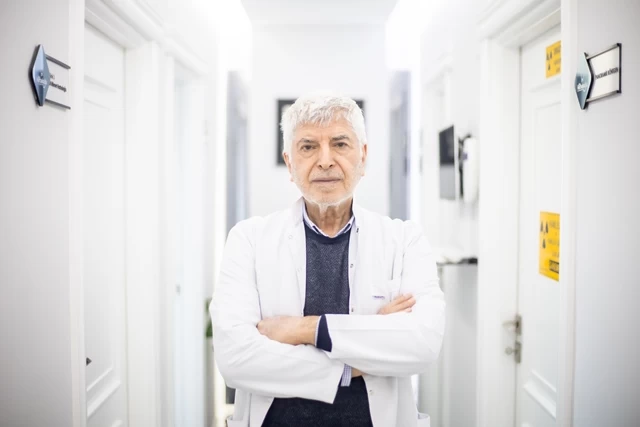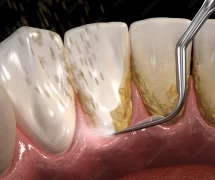
Importance of Dental Calculus Cleaning
- Importance of Dental Calculus Cleaning
- What is Dental Calculus (Tartar)?
- Why is Dental Calculus Cleaning Important?
- Stages of Dental Calculus Cleaning
- How Often Should Dental Calculus Cleaning Be Done?
- In conclusion...
Maintaining a healthy oral and dental structure is crucial for preserving our overall health. Regular cleaning of our teeth is one of the essential steps to prevent gum diseases and maintain dental health. Dental calculus cleaning, also known as dental scaling, is one of the most important procedures in oral care. In this article, you will learn more about dental calculus cleaning.
What is Dental Calculus (Tartar)?
Dental calculus, also referred to as tartar, is mineralized plaque that accumulates on the teeth. Plaque is a sticky layer formed by the combination of food debris, bacteria, and saliva. If plaque is not removed promptly, mineral deposition begins, resulting in the formation of dental calculus. Dental calculus typically appears as a yellow or brownish deposit on the teeth.
Why is Dental Calculus Cleaning Important?
Dental calculus cleaning is an important procedure for maintaining oral health and preventing various dental and gum problems. Here are some factors that highlight the importance of dental calculus cleaning:
- Prevents gum diseases: Dental calculus, which is mineralized plaque on the teeth, can lead to bacterial accumulation and irritation of the gum tissues. Over time, dental calculus can damage the gums and contribute to the development of gum diseases such as gingivitis and periodontitis. Dental calculus cleaning prevents the formation of gum diseases by removing plaque and tartar.
- Reduces the risk of tooth decay: Dental calculus on the tooth surfaces increases the susceptibility to tooth decay. Plaque and tartar promote the production of acids by bacteria, which can damage the tooth enamel. Dental calculus cleaning removes plaque and tartar, thus reducing the risk of tooth decay.
- Prevents bad breath: Dental calculus can contribute to the development of unpleasant breath odor. When bacteria and food debris accumulate on the teeth, they can cause a foul smell in the mouth. Dental calculus cleaning helps prevent bad breath by removing these accumulations.
- Enhances the appearance of teeth: Dental calculus can cause yellow or brownish stains on the teeth, affecting their aesthetic appearance. Dental calculus cleaning removes these deposits, resulting in whiter and healthier-looking teeth.
- Affects overall health: Oral health is an integral part of our general health. Research has shown that gum diseases may be associated with other health issues such as heart disease, diabetes, respiratory infections, and preterm birth. By maintaining oral health through dental calculus cleaning, we can positively impact our overall well-being.
In conclusion, dental calculus cleaning is an important step in preserving dental and oral health. Regular dental calculus cleaning improves oral health, prevents gum diseases, reduces the risk of tooth decay, and positively affects our overall well-being. It is recommended to schedule dental check-ups with your dentist to plan your dental calculus cleaning program.

Stages of Dental Calculus Cleaning
Dental calculus cleaning is typically performed by a dentist or dental hygienist in a professional setting. Here are the stages involved in dental calculus cleaning:
- Preliminary Evaluation: Before dental calculus cleaning, a dentist conducts a preliminary examination to assess your oral health. They check the condition of your teeth and gums, identify any existing plaque and tartar buildup, and may perform X-rays or a periodontal examination to evaluate the gum condition.
- Plaque and Tartar Removal: The dentist uses specialized instruments to remove plaque and tartar accumulated on the teeth. This is often done using an ultrasonic device, which breaks down and removes dental calculus through vibrations. Manual instruments may also be used. During this stage, the dentist cleans all surfaces of the teeth, including the front, back, and gumline.
- Tooth Brushing and Polishing: Following dental calculus cleaning, the teeth are brushed and polished using a special toothpaste. This step removes any residual plaque and stains, provides a smoother tooth surface, and enhances the whiteness of the teeth.
- Rinsing and Final Evaluation: After dental calculus cleaning, the mouth is rinsed, and the dentist conducts a final evaluation. They check the condition of your gums and provide information if any issues or further treatment are required. Additionally, they may determine whether regular follow-up for dental calculus monitoring is necessary.
Dental calculus cleaning can generally be completed in a single session. However, if there is significant tartar buildup on your teeth or specific conditions like gum disease, multiple sessions may be required to complete the treatment. Dental calculus cleaning should be performed by a professional dentist. Home dental cleaning tools or methods cannot effectively perform dental calculus cleaning and may cause harm to your oral cavity.
How Often Should Dental Calculus Cleaning Be Done?
Dental calculus cleaning is typically recommended to be done once or twice a year. However, if there is rapid tartar buildup on your teeth or specific conditions such as gum diseases, your dentist may advise more frequent dental calculus cleaning.
In conclusion...
Dental calculus cleaning is an important procedure for maintaining oral health and preventing various oral problems. It is crucial to maintain regular communication with your dentist and establish a dental calculus cleaning program tailored to your needs. Remember, a healthy mouth is a fundamental part of our overall health, and regular dental calculus cleaning is a vital step towards achieving this goal."






